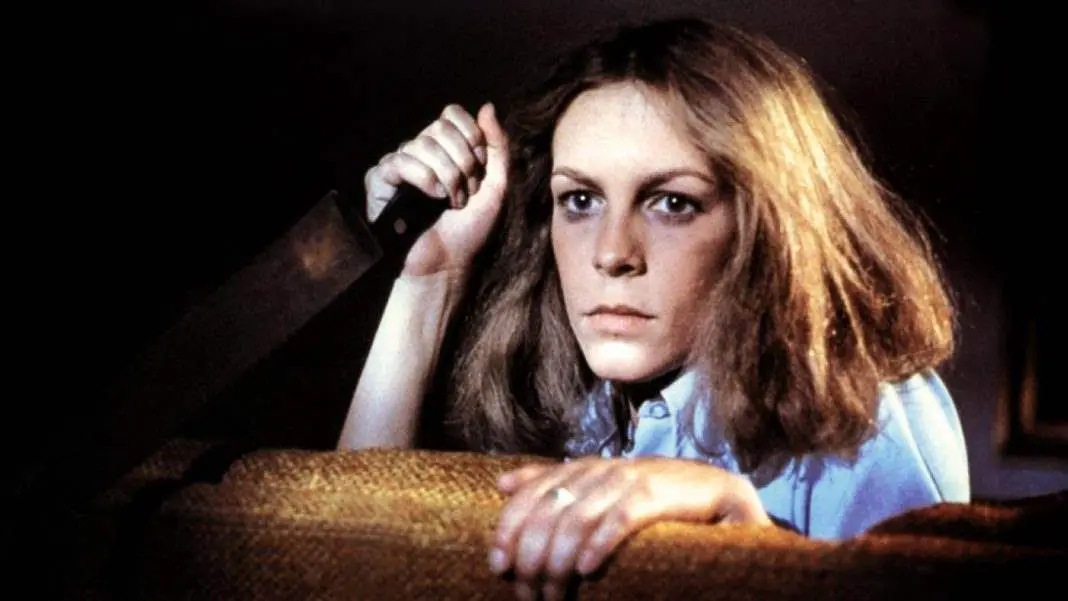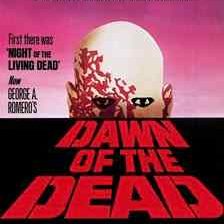Rob Zombie’s Halloween (2007) remains one of the most widely, and viciously, despised remakes of all time – despite how The Thing (2011) threw out its finely-tuned practical effects in favor of shoddy CGI, and Child’s Play (2019) made Chucky a sad sack loser whose whimpers echoed from the closet in which he was far too easily trapped by loser-pants Andy. Point is, there’s been much worse, even within the Halloween franchise itself, than Zombie’s brutal, nasty, and defiantly rough around the edges take on Michael Myers. The general argument among genre fans is that Zombie should’ve been given the opportunity to remake The Texas Chain Saw Massacre instead, since Tobe Hooper’s still-horrifying 1974 shocker is more suited to his proudly unpleasant predilections. It’s true that film probably would’ve made more sense, but as a lifelong horror fan who’s clearly as obsessed with Michael Myers as the rest of us, there’s also a strong argument to be made for Zombie’s unique take on the mythos.
See Also: Rob Zombie’s Halloween II is a Product of Its Time With a Surprisingly Modern Twist [Retrospective]
The prolific musician and filmmaker has evidently spent much of his life wondering what drove the young boy in the clown costume to ruthlessly stab his sister to death. And, like it or not, Rob Zombie’s Halloween, as it’s colloquially known, makes a compelling case for how Michael Myers was created. His home life is devastatingly difficult, with a hideous stepfather (The Devil’s Rejects’ William Forsythe, doing a bad impression of his co-star from that movie, Bill Moseley, who must have been too busy to take on a proper role since he’s credited only for a cameo) spitting venom and perving on his elder sister, the doomed Judith, who also picks on Michael for fun, while their mother is forced to strip to make ends meet. Zombie is frequently criticized for putting his wife, Sheri Moon Zombie, front and center in his movies – earlier this year, a gleefully misogynist (and painfully unfunny) joke circulated on social media, purporting that he would even cast her as the shark in Jaws, if Zombie were to remake the film – but such complaints ignore the fact Sheri is a bloody good actor in her own right. Moreover, she’s certainly more compelling than Kevin Smith’s wife, Jennifer Schwalbach, who’s almost incapable of delivering a convincing line read and reportedly refuses to even take direction from him on set.
Sheri has exhibited impressive range across her husband’s filmography, and in Rob Zombie’s Halloween she’s genuinely sympathetic Deborah Myers, as a tortured woman with a disturbed kid who’s doing her best to keep their lives afloat under increasingly impossible circumstances. John Carpenter’s original film didn’t fill in the blanks of what happened while Michael was locked up in Smith’s Grove. Zombie provides some backstory, told mostly through the eyes of Michael’s distraught mother, who fights, alongside Doctor Loomis (a perfectly cast Malcolm McDowell, who’s even better in the sequel when he believably transforms into an oily, fame-hungry prick), to draw him towards the light as the burgeoning serial killer inevitably succumbs to the darkness. Deborah’s suicide, which occurs while she’s crying on the sofa, surrounded by the destruction her son has caused, and watching home videos of their family in happier times, is genuinely upsetting. And, crucially, it’s the only death we don’t see in all its gory glory, further emphasizing the emotional resonance. For a good chunk of the movie, Zombie makes a case for how Michael’s mistreatment at the hands of others justifies his desire to kill. However, he’s also shown torturing and murdering innocent mice in the beginning too – something we know budding serial killers do early in their lives, which hints at the real evil within.
His first murder – of Spy Kid Daryl Sabara – is entirely justified since the boy was bullying Michael in school and even implied Deborah was a hooker. The camera hunches down behind a bush as Michael surveys his prey, Zombie notably making us all parties to his crime. The slow pull-down of Michael’s homemade mask is an interesting visual, a character touch that arguably has its origins in the heels of professional wrestling. Judith’s boyfriend is similarly dispatched with several hideous blows to the head but, for his mean older sister, Michael takes his time. Of course, she’s listening to “Don’t Fear the Reaper” when he creeps up on her – the clever use of contemporary music throughout Rob Zombie’s Halloween cannot be understated, with “Love Hurts” another standout on the soundtrack, alongside tracks from Kiss, Rush, and The Misfits – and the chase scene through the hallway and down the stairs, after she’s already been stabbed a number of times, is drawn out, nasty and tightly shot. Naturally, their stepfather deserved to die, especially passed out and tied to a chair in his relaxed drunkenness, so also he’s killed much quicker.
The death of Danny Trejo’s sweet-natured asylum worker, Ismael, proves Michael kills indiscriminately. We empathize with him up until that point, which is nuts to think about – Zombie makes us care for Michael Myers, to the extent it’s heartbreaking watching him gradually shut down, as even his own mother and Loomis give up on trying to help him. Michael has been many things, his legacy disrespected on several different occasions, but never before have we empathized with where he’s coming from. Zombie takes a big risk, but it pays off, particularly considering just how vicious Ismael’s murder is. There’s a lovely shot of blood pooling in the mop bucket with each dunk of his head, which solidifies just how much care and attention Zombie put into what could very easily have been a shot-for-shot remake (it’s not, despite what you may remember). Sure, all the low-rent, Slipknot-style masks lining the walls of Michael’s cell are goofy and nonsensical – where did he even get the materials? – but the BIG reveal of just how huge he’s grown up to be is brilliant.
Casting former wrestler Tyler Mane rather than a regular sized man was another perilous choice, because part of Michael’s scare appeal is that he can very easily blend into a crowd. Mane isn’t the kind of dude who’s going to blend in, but rather than pretending he can, Zombie re-emphasizes and plays with his size repeatedly throughout Halloween. The shot of Laurie (an insanely young Scout Taylor Compton, in her first ever horror role) walking home that bleeds into a shot of Michael strolling the same street is smart, because it highlights just how much of an uphill battle it’s going to be for her to beat him even before they’ve crossed paths. Elsewhere, Michael busts down doors, smashes walls and floorboards to get to Laurie in the dilapidated Myers house and, in one particularly chilling moment, stands over the sofa unbeknownst to the person sitting comfortably below him. There are plenty of loud moments in the 2007 reboot, but when things get quiet, Zombie demonstrates how much he understands these characters, or at least his personal take on them.

There are tons of great cameos, including Ken Foree, Udo Kier and Sid Haig, but the casting of horror icon Brad Dourif as Sherriff Brackett, alongside the aforementioned Compton and a young Skyler Gisondo as Laurie and Tommy respectively, is genius. The eternally youthful Danielle Harris, a franchise alum, recently revealed that producer Malek Akkad tried to stop her from being cast because he thought she wasn’t hot enough, which is shocking. Harris discussed what happened on Talk Scary to Me, the podcast she does with Compton, where it’s clear the two still share a bond after working on these movies together. Elsewhere, McDowell as Loomis is obviously perfection too. During an early speech, Loomis pontificates about what made Michael, which is clearly something Zombie has wondered about for his whole life, just like the rest of us. His Halloween is the result of all that obsession, for better and worse. It’s a cruel movie, for sure, loaded with intensity and ferociously violent kills. There are some expertly-timed jump scares along the way, but John Carpenter’s still brilliant, repurposed score understandably does a lot of the heavy lifting.
Although Zombie pays homage to the horror maestro with many of his setups, he also updates the story for a modern audience, with a brutal toilet-based kill that would, sadly, later be done better in Halloween (2018), characters shagging in the old Myers house (always a bad idea) and the climactic battle between Michael and Laurie taking place there too. The basement chase sequence is truly frightening, and Compton, to her great credit, plays it as though she’s legitimately effing terrified – her Laurie gets fleshed out more in the sequel, but this is still a terrific introduction to a more modern take on the character. A dilapidated house is a great setting for the big finale, with lots of crawl spaces for Laurie to hide in and stuff for Michael to break. Zombie shoots it tight and claustrophobic, emphasizing how unlikely escape is, and how relentless Michael is, too. Fittingly, the whole thing ends with a bloodied, and blood-curdling scream. This isn’t a great looking film necessarily, but the bleak ugliness suits the material.
See Also: Frightfest 2016 Review: Rob Zombie’s 31
There are some missteps along the way, most notably an ill-advised rape scene that thankfully only exists in the director’s cut. Zombie isn’t someone who typically features sexual violence in his movies, despite how foul-mouthed they tend to be, which just makes it even more baffling why he chose to include it here. Likewise, the fact every female character seemingly has to die with her tits out is disheartening though, again, it was likely a Weinstein note since it’s not Zombie’s usual style either. But, for the most part Rob Zombie’s Halloween is remarkably solid, particularly for mid-2000s mainstream fare. It’s considerably better than Black X-Mas, The Omen and The Hills Have Eyes, all of which were released just one year before. Bear in mind, too, the execrable A Nightmare on Elm Street remake came out in 2010, and it disrespected the original film in every conceivable way. Zombie may have been better served tackling Leatherface and his murderous family, whose gleeful hillbilly torture is more his wheelhouse, but Zombie’s uniquely horrible take on the myth of Michael Myers showcases his love of the character, and the franchise, above all else and that’s not something to sneer at. Hey, if nothing else, at least he didn’t make him a pot farmer.








